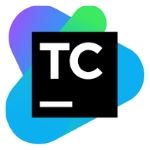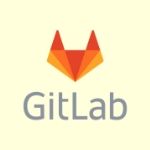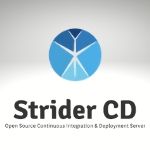In DevOps, Continuous Integration (CI) is the method of improving the quality of code in an ongoing basis. This software engineering process combines all the copies of code created by developers in a shared environment. All activities performed in the CI stage boil down to one objective—providing prompt feedback on any defect detection in the code base and rectifying it as fast as possible. Thanks to CI, developers are capable of automating the software testing process on the server, thereby facilitating prompt reporting for users. CI tools helps developers isolate all the amendments made to the code and report them simultaneously whenever the changes are added to the larger code base.
In order to achieve maximum productivity as well as high quality code, it is imperative for businesses to adopt the best CI tools. However, with an abundance of different tools in the marketplace, it is quite a cumbersome task to choose the best for an organization. To help you get started, we have curated the following list of the most popular CI tools:

A cross-platform CI tool, Jenkins helps developers build and evaluate software projects in a continuous manner. Thanks to Java programming languages at the core, Jenkins is capable of offering real-time testing and reporting processes, which further assists developers to incorporate changes into the code promptly. In essence, Jenkins facilitates easy ways of creating a pipeline and integration via multiple deployment methods. Jenkins offers easy installation and configuration methods, which has proven beneficial for developers in terms of easy extension and modification of all new plugins. That’s not all; with its Rich Plugin feature, Jenkins seamlessly integrates with almost all software configuration management (SCM) tools in a virtual manner.

Buddy is a smart DevOps go-to solution, which serves both as a CI and a Continuous Deployment (CD) tool. Developers leverage Buddy to build, test and deploy software with the aid of delivery pipelines. These pipelines comprise more than 100 plug-and-play actions that can be arranged according to the requirement of the project. Buddy helps developers configure their system through crisp user interface and experience within just 15 minutes. Experts can easily run all builds in isolated containers, experience faster changesets-based deployments, and seamless integration of their systems with multiple plugins such as Azure, WordPress, Google, AWS and many more. Buddy provides dedicated rosters of Kubernetes or Docker actions, besides supporting all popular frameworks, languages and task managers.

TeamCity promises enhanced quality of code for projects through extensibility and customized environments. Its uniqueness lies in its ability to maintain the health and stability of the CI server intact even when there are no active builds. This tool offers project level cloud-based profiles, thereby ensuring high-end security while creating, testing and deploying code. What’s more, this tool offers holistic version control system (VCS), pretested commit, and progress reporting without any interruption on the program run.

Bamboo helps developers perform automated build, test and deployment of code in a single place. This CI build server works with JIRA and Bitbucket in a seamless manner, and supports multiple languages, along with Ducker, AWS, SVN, Git and similar technologies. Bamboo offers multifold benefits for developing teams which include simple installation and parallel batch tests, triggering builds that depend on changes identified in the repository. Added to that, the tool also offers built-in Git Branching and workflows, and real-time collaboration with HipChat. Bamboo’s per-environment permissions feature enables the QA and developer teams to deploy the code to their environments accordingly.

An open source tool, Strider is written in Node.JS/Javascript and uses MongoDB as backing store. This tool supports multiple plugins that are responsible for the modification of database schema and registration of HTTP routes. It can easily integrate with Bitbucket, Gitlab, and similar other projects, allows adding of hooks to execute arbitrary build actions, enables developers to build and test code on an ongoing basis, besides allowing publishing and subscribing to socket events. Strider also helps development teams to create as well as modify the UI according to the requirement of the projects.

The most unique feature of CircleCI is its flexibility in running irrespective of the environment, for instance, Python API servers, cross-platform mobile applications, even Docker clusters. Capable of supporting multiple languages such as PHP, Python, C++, Ruby, Javascript and the like, this tool allows developers to configure a customized environment. CircleCI prevents non-admins from making changes to critical settings, and splits and balances tests across containers, which consequently reduces overall build time. This tool also allows automated cancellation of any scheduled or ongoing builds in situations where a new build is triggered.

A part of Gitlab, Gitlab CI is an API-based web application that records its states in a database. This tool manages projects via a user-friendly interface, apart from offering beneficial features, which include convenient methods for changing the metadata of a merge request or an issue without adding any slash comment in the comment field. The Gitlab Container registry is a secure option for registering Docker images. This tool also secures all information through its Confidential Issues feature. The APIs encourages teams to develop deeper integrations with the product, besides guiding them through the process of transitioning their ideas into production by identifying the scope for improvement in their code development.

As the name suggests, Nevercode eliminates any human intervention from the building, testing and deployment processes of applications. This cloud-based CI delivery server builds projects automatically for all commits, which is followed by running the UI or unit tests on the emulator, simulator, or even on real hardware. The best part of Nevercode is that it is cloud-based, which ticks off the requirement to maintain servers. The tool allows detailed documentation feature, which is easy to understand and observe during the subsequent steps of the project. Process automation through CI and CD has never been easier.

Codeship is known for its ability to facilitate automated the development process and deployment workflow by easily pushing the code to the repository. This powerful CI tool offers the developer full control over the CI and CD design, along with a centralized team management through comprehensive dashboards. Features such as Secure Socket Shell (SSH) and easy access debug builds allows debugging processes from the CI environment itself. Apart from this, Codeship also provides total control over the customization and optimization of the CI/CD workflow. Encrypted caching of Docker Images by Codeship keeps information secure. Codeship also helps set permissions for teams within an organization.

An open source tool, Strider is written in Node.JS/Javascript and uses MongoDB as backing store. This tool supports multiple plugins that are responsible for the modification of database schema and registration of HTTP routes. It can easily integrate with Bitbucket, Gitlab, and similar other projects, allows adding of hooks to execute arbitrary build actions, enables developers to build and test code on an ongoing basis, besides allowing publishing and subscribing to socket events. Strider also helps development teams to create as well as modify the UI according to the requirement of the projects.

Integrity is a CI server that works solely with GitHub. This server automatically builds and runs the code whenever developers commit the same. Following this, the tool also generates reports and provides accurate information to the users. Although the tool currently works only with GitHub, developers can also integrate it with other software configuration management (SCM) tools. In addition, Integrity also supports multiple notification mechanisms such as Email, HTTP, Flowdeck, TCP, AMQP and the like. The tool features a HTTP Notifier, which automatically sends HTTP POST request to the specific URL.

The open-source BuildBot CI tool is commonly known for its ability to automate the compile/test cycle and is mainly used for software projects that require code change validation processes. This tool offers efficiency in distributed execution of jobs among multiple platforms. Other features of BuildBot include support different testing hosts that possess different architectures, prompt reporting of kernel crashes of hosts, build and deployment automation, and single-source repository. Added to that, developers are capable of building every commit on mainline on integration machines.

The AutoRABIT tool is popularly known as an end-to-end CD Suite to accelerate the development process among teams. By streamlining all complete release processes, AutoRABIT facilitates CI at all levels of the business, irrespective of their sizes. This tool is specifically designed to deploy on the Salesforce Platform, ensuring lean, focused, and swift deployments depending on the changes in the code. AutoRABIT supports more than 120 metadata types, thereby helping developers increase their productivity. Additionally, the tool efficiently fetches the changes in code from the VCS, followed by direct, automated deployment of the same into the Sandbox, which are then auto-committed back into the VCS.

Wercker creates automated pipelines in order to execute them via the command line interface. The tool is fully integrated with Bitbucket and GitHub; it can also seamlessly integrate with multiple other tools and facilitate faster local iterations with the aid of Wercker CLI. Wercker is efficient in executing builds in a concurrent manner, which in turn keeps the pace of the development teams steady. What’s more, the tool helps run parallel tests in order to reduce the wait time for teams significantly. Developers are able to receive prompt system notifications about changes made to the code or any issue in product through emails, which keeps them alerted of any further steps to be taken in alignment to the same.

FinalBuilder is a CI tool that has been designed by Vsoft. Eliminating the need for editing xml or writing scripts, FinalBuilder has brought in the ability to outline and debug build scripts whenever they are scheduled. This is done via Windows Scheduler, or else integrated with Continua CI, Jenkins and similar other tools. FinalBuilder offers a logical graphical interface, which can be used for build processes. The try-and-catch features provided by this tool effectively manages localized errors. Besides supporting numbers of VCSs, FinalBuilder is also known for its unparalleled support for scripting.

Apart from being one of the best CI tools, CruiseControl is also popular as an extensible CI framework that can be easily used for creating a customized continuous build process. This tool can seamlessly integrate with different source control systems such as vss, git, perforce, csv, as well as external tools like MSBuild, Visual Studio, and NAnt. Using this tool, Developers are capable of building several projects on one server itself. With features like instant messaging and email, teams can easily collaborate on a project, which implies easy remote management of tasks.

A cross-platform build runner, the Buildkite Ci tool facilitates automated build runs on a given infrastructure. The uniqueness of this tool lies in its ability to run on numerous operating systems (OS) and architectures. Furthermore, it can also run code from almost any VCS. Thanks to the stable infrastructure offered by Buildkite, developers are able to experience seamless code creation and amendment. This tool can easily integrate with Slack, Campfire, HipChat tools and allows unlimited build agent runs on almost any machine. The Buildkite tool never asks for secret keys or source code, which makes it one of the best tools for running build jobs and reporting the status code along with the output log.

The Semaphore CI tool enables developers to test and deploy codes with just a push of a button. Capable of supporting multiple languages and frameworks, this tool is mainly used for automated testing and deployment processes and can be easily integrated with GitHub and Bitbucket. One of the fasted CI tools available in the market, Semaphore spans multiple projects irrespective of their sizes. The tool also facilitates automated parallel testing, thereby significantly reducing the overall time in completing a project.

Urbancode Deploy by IBM offers robust traceability and visibility clubbed with auditing features, all in a single CI tool. Urbancode efficiently enhances the software frequency with the aid of automating repetitive deployment procedures, consequently reducing the scope for failure in a significant manner. It ensures enterprise level scalability and security through a hybrid cloud modeling that further helps developers to create code without the fear of data breach. Featuring drag-and-drop automation, this tool can be safely used to accelerate processes and meet deadline, simultaneously achieving high-quality of code. Urbancode duly streamlines all the deployment of multi-channel applications to all environments, regardless of whether they are in the Cloud or on-premise.

Bitrise is a combined CI/CD Platform as a Service (PaaS) that also offers mobile CI/CD for the entire team. It can be easily integrated with tools such as HockeyApp, HipChat, Crashlytics and so on. This tool helps developers create as well as test all workflows in their terminals. The best part of this tool is that developers can avail all applications without having to access manual controls. Bitrise provides unparalleled support for GitHub Pull Request, along with almost all recognized third-party beta testing and deployment services. It also allows every build run in an individual manner in its designated virtual machine; all data is discarded after the build ends.

Travis CI is one of the most popularly used open-source tools for testing of code. Developers as well as testers are capable of synchronizing Travis CI seamlessly with GitHub during the testing process. It offers multiple private repository plans for every project regardless of its size. One of the unique features of the Travis CI tool is that the users are able to see and evaluate every information during the testing process. The tool also facilitates the process of parallel test runs via its multiple line tools and APIs. Travis CI supports branch build flows, along with pull requests. The tool supports Linux, Mac, iOS and different other platforms and languages.

The ThoughtWorks company creates CI tools that integrate code at least once daily, besides identifying the issues effectively. This, in turn, reduces the overall backtracking time for detecting errors and developers can utilize that time for designing other features of a software instead. The CI tools provided by ThoughtWorks enhance overall visibility during the development and deployment processes, helping the users see and understand the proceedings and make informed decisions. Using a single source repository, these tools automate the deployment process and builds fast self-testing workflows.

The Hudson CI tool is mainly used for developing and testing software projects in a continuous manner. This tool effectively monitors and executes externally run jobs. Hudson’s unique features include easy installation, user-friendly graphical user interface, and the ability to support Changeset that provides the lists of changes from SCM systems. Hudson also provides permanent link features that ensure clean and readable URLs. Thanks to Hudson, development teams are capable of monitoring and building results with the aid of email or RSS. Added to that, they can tag builds after they are completed. The tool offers extensibility, and distributed computer processing.

Perforce Helix can be described as a uniform, flexible, and an open platform for CI that supports all documented APIs. The tool’s powerful versioning engine feature helps developers manage and secure multiple files irrespective of their size or type. Perforce Helix’s collaboration interface helps teams review, comment, and make decisions through the Helix Swarm. Additionally, the GitSwarm ecosystem feature performs access control and synchronizes a mainline repository, easily detects and predicts potential threat or risks, and outlines their impact within a few seconds.

AppVeyor is an open-source CI build server in a cloud environment; it does not require any setup for installation and comes with zero maintenance. The tool’s unique UI and YAML make it developer friendly. It has a dedicated isolated, multi-branch build worker for every build. The tool offers first class supports, pay per use, built-in deployment and vibrant communication and many more special features of the Appleyard.
With so many CI tools in the marketplace, choosing the right one naturally becomes an overwhelming task for businesses. In such scenarios, it is advisable to identify the features offered by these tools and understand their functionality before zeroing on any one tool.
WhatsApp us

Request A Free Demo Today !